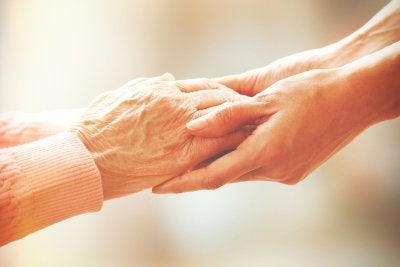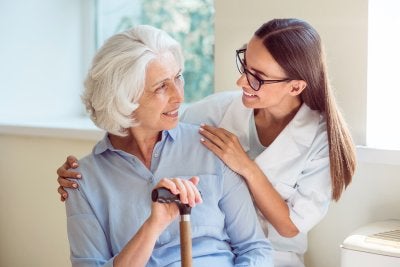-
Tips for Solving Sibling Disputes About Care Plans for Parents
When aging parents begin to develop functional limitations or poor health, it’s time to discuss elder care if you haven’t done so already. Of course, if your parents are still mentally capable, they will make the decisions regarding their own assisted living services. But if you and your siblings are responsible for making these decisions, disagreements can easily arise regarding the best way to care for elders in Memphis .

Identify Underlying Conflicts
Before you can develop a workable solution for sibling disagreements, it’s helpful to assess whether there is an underlying conflict. Siblings have a shared history that may contain unpleasant memories and rivalries. It’s challenging to address complex needs like in-home care and siblings can readily revert back to their childhood roles. Have a frank discussion with your siblings. Acknowledge that family dynamics may not be ideal, but that mom and dad need everyone to be on board with their care plan.
Request a Neutral Assessment
Another effective strategy is to introduce the guidance of a neutral third-party such as a professional in-home caregiver. Asking for a professional assessment of your parents’ needs is particularly helpful when you and your siblings disagree about the type and extent of care services your parents need. Perhaps the sibling who lives closest to mom and dad understands that their personal hygiene and housekeeping have been neglected, but siblings who live farther away aren’t convinced that these problems exist. Professional guidance can help all of the siblings gain a clearer understanding of the needs of the parents.
Establish Open Communication
Another common sibling dispute regarding elder care plans occurs when one adult child feels that he or she is shouldering an unfair amount of the work. Perhaps the other siblings live too far away to provide care or perhaps they simply aren’t comfortable in a caregiving role. It’s important to communicate these issues openly, rather than let resentment build up. The sibling who is performing most of the work might ask the other siblings to pay for respite care, for example. It’s to be expected that the parents’ needs will change over time. The sibling who is closest to mom and dad should make an effort to keep the others informed of any major changes.
-
How Loneliness Can Affect Health in Seniors
Millions of seniors live alone in the U.S. Social isolation is quite common among seniors because of transportation and mobility difficulties, bereavement, and retirement from the workforce, among other factors. When seniors suffer from social isolation, they are at a higher risk of emotional, mental, and physical health problems that can jeopardize their longevity and reduce quality of life. One effective solution is assisted living . In-home caregivers in Memphis provide both the practical assistance and the companionship that seniors need to live life well.

Emotional Effects
For many seniors, loneliness becomes an unfortunate fact of life. Without the loving companionship of an in-home caregiver, many seniors have little to look forward to each day. When a senior believes that his or her loneliness will last for the rest of his or her life, it becomes much more difficult to bear. Seniors who are socially isolated are at a higher risk of developing clinical depression and suicidal thoughts or actions.
Mental Health
Social isolation is a crucial source of cognitive stimulation. When seniors are chronically lonely, they may be more likely to display signs of memory loss, confusion, and other mental impairments. Studies also suggest that socially isolated seniors may develop dementia that progresses more rapidly than it otherwise would.
Physical Wellness
The wellness of the mind can significantly affect the health of the body. Seniors who are socially isolated , particularly those who struggle with depressive symptoms, have been shown to have an increased risk of high blood pressure and other cardiovascular health problems. They are also at risk of falls that can cause disabling injuries and mortality is more likely. A possible contributing factor to the decline in physical health of a socially isolated senior is that there is no elder care provider to offer medication reminders, prepare nutritious meals, and assist with mobility. Seniors with depression may neglect to eat or take care of their personal hygiene. Some of them may even choose to self-medicate their loneliness with alcohol. These problems are certainly alarming, but they are also preventable. Assisted living services allow seniors to remain connected with others while still living independently in their own homes.
-
Get the Facts About Vascular Dementia
There are many different forms of dementia that may require a person to consider elder care assistance. Home health companies near Memphis often work with individuals who have vascular dementia , which is second to Alzheimer’s disease in terms of prevalence. When you watch this video, you will learn that vascular dementia is the result of interference with the blood supply to the brain. When the brain cells are deprived of the life-giving blood they need, they begin to die off. This irreversible damage gives rise to vascular dementia.
A person receiving assisted living care because of vascular dementia may display problems such as confusion, mobility impairment, agitation, or the loss of urinary control. The impairments depend on the area of the brain that sustained damage. There are ways of reducing the risk of vascular dementia, which you’ll learn about from this featured video.
-
Recognizing the Importance of Transition Care
Transition care is an essential part of bridging the gap between hospitalization and the return to normal activities. It is especially important for seniors, who may have longer recovery periods, and people of any age who are recovering from surgery or an illness that has limited their mobility. Contact Caring Companions near Memphis to find out how our in-home care providers can assist with transition care service. Here are some of the reasons why transition care is so important.

Avoid Injuries
Without in-home care from an assisted living provider, a person recovering from surgery, an illness, or injury runs the risk of re-injury or exacerbating the condition. This can lead to frustration, delayed recoveries, and re-hospitalization, which in turn increases the risk of infection. An in-home caregiver can ensure the safety of a patient transitioning back to home by providing help with cooking, household responsibilities, and errands, allowing you or your loved one focus on getting better.
Make Faster Recovery Progress
Having a caregiver provide in-home transition care help you or your loved one have a faster recovery. In addition to helping to prevent injuries, caregivers can provide medication reminders, drive you or your loved one to physical therapy, and remind you when to do exercises recommended by the doctor. He or she can also help with healthy meal preparation to provide the necessary nutrients to boost recovery. All of this extra assistance is an investment in faster recovery times.
Peace of Mind
Transition care provides enormous peace of mind to people coming from the hospital or rehab facility and their families. By hiring a caregiver, families can feel confident that their loved ones are safe and cared for while recovering from home without having to take time off from work or travel from a distance. In-home caregivers welcome the input of families and will work with everyone to come up with the right plan for transition care.
